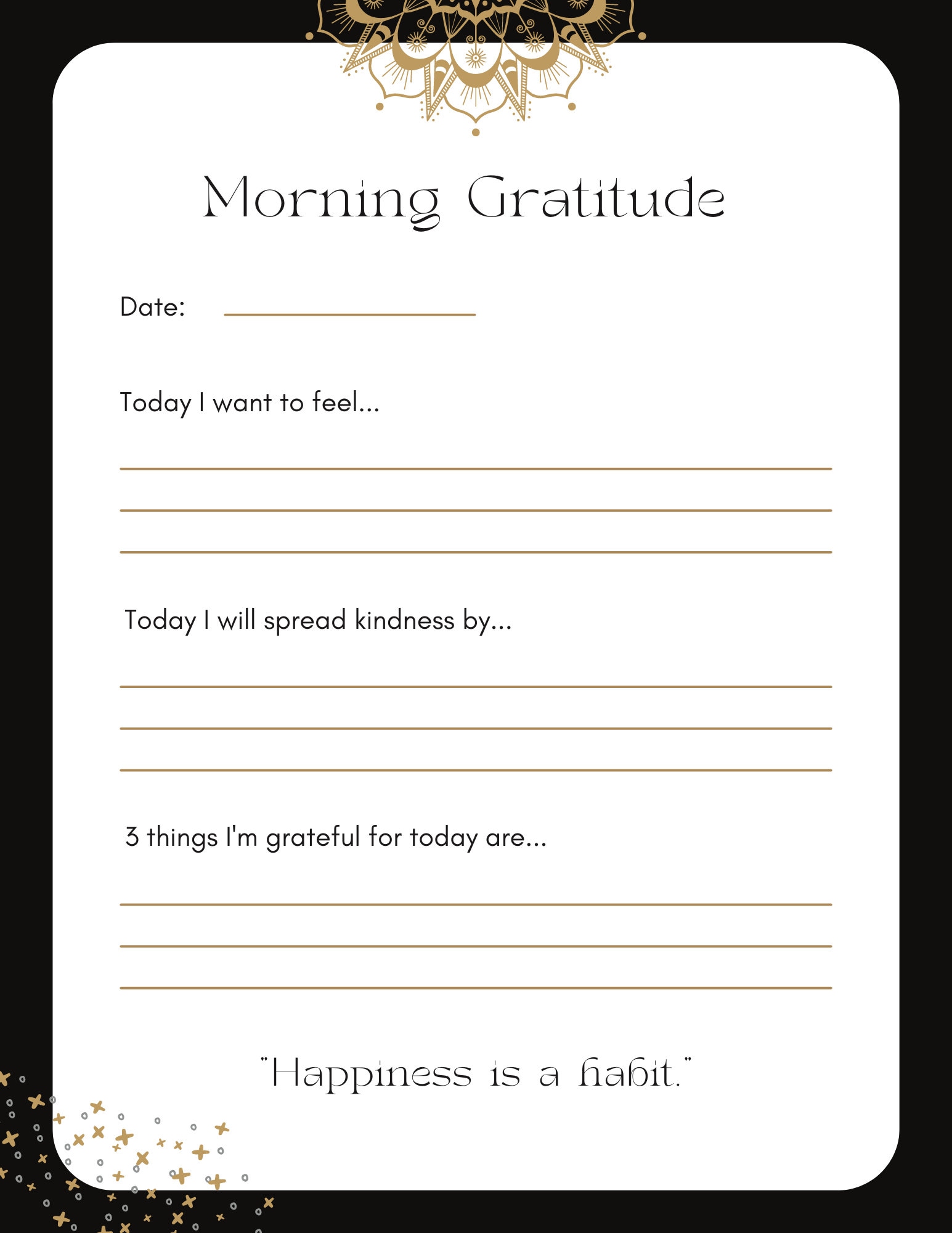How to Create a Positive Morning Routine

How to Create a Positive Morning Routine
Creating a positive morning routine is a powerful way to set yourself up for success and well-being throughout the day. For middle-aged individuals aged 40-55, establishing a consistent morning routine can help manage stress, boost energy, and enhance overall quality of life. In this article, we’ll explore the benefits of a morning routine and provide practical tips on how to create one that suits your lifestyle.

Benefits of a Morning Routine
-
Reduces Stress and Anxiety: A structured morning routine helps create a sense of control and predictability, which can significantly reduce stress and anxiety. This is particularly important for middle-aged individuals who may face various life challenges, such as career pressures or family responsibilities .1 .2.
-
Improves Mental Clarity: Starting the day with a clear plan can enhance mental clarity and focus. Engaging in activities like meditation or solving puzzles can help keep your mind sharp and ready for the day’s tasks .2 .5.
-
Boosts Physical Health: Incorporating physical activities like yoga or a short walk into your morning routine can improve flexibility, balance, and overall physical fitness. This is crucial for maintaining health and preventing age-related conditions .3 .5.
-
Enhances Emotional Stability: A consistent routine provides emotional stability by offering a sense of predictability and comfort. Activities such as journaling or practicing gratitude can help maintain emotional balance .2 .4.
-
Fosters Social Engagement: Including social interactions in your morning routine, such as having breakfast with family or calling a friend, can help combat loneliness and strengthen relationships .2 .5.

Creating Your Morning Routine

1. Set a Consistent Wake Time
-
Why It Matters: Waking up at the same time every day helps regulate your body’s internal clock, leading to better sleep quality and increased alertness throughout the day .4 .7.
-
How to Implement: Choose a wake-up time that works for you and stick to it, even on weekends. Gradually adjust your bedtime to ensure you get enough sleep.

2. Start with Hydration
-
Why It Matters: Drinking water first thing in the morning helps rehydrate your body after a night of sleep, improving cognitive function and energy levels .4 .8.
-
How to Implement: Keep a glass of water beside your bed to drink as soon as you wake up.

3. Incorporate Physical Activity
-
Why It Matters: Morning exercise boosts energy, improves circulation, and sets a positive tone for the day .3 .5.
-
How to Implement: Start with light exercises like stretching, yoga, or a short walk. You can also try more structured activities like Pilates or swimming if they appeal to you.

4. Eat a Nutritious Breakfast
-
Why It Matters: A healthy breakfast provides essential nutrients and energy for the day ahead, supporting mental clarity and physical performance .4 .8.
-
How to Implement: Prepare a balanced meal that includes whole grains, lean proteins, fruits, or vegetables. Consider meal prep the night before to save time.

5. Engage in Mental Stimulation
-
Why It Matters: Activities like reading, puzzles, or meditation can enhance cognitive function and mental clarity .2 .5.
-
How to Implement: Allocate time for activities that stimulate your mind, such as solving a crossword puzzle or practicing mindfulness meditation.

6. Prioritize Emotional Well-being
-
Why It Matters: Practicing gratitude or journaling can help maintain emotional stability and positivity .4 .5.
-
How to Implement: Spend a few minutes each morning reflecting on things you’re grateful for or writing in a journal.

7. Incorporate Social Engagement
-
Why It Matters: Social interactions in the morning can boost mood and reduce feelings of loneliness .2 .5.
-
How to Implement: Share breakfast with family, call a friend, or join a morning group activity to foster connections.

Tips for Maintaining Consistency
-
Be Flexible: Life can be unpredictable, so don’t be too hard on yourself if you miss a day. Simply get back on track as soon as possible .4.
-
Set Micro-Goals: Break down your routine into smaller, manageable tasks to make it feel less overwhelming







